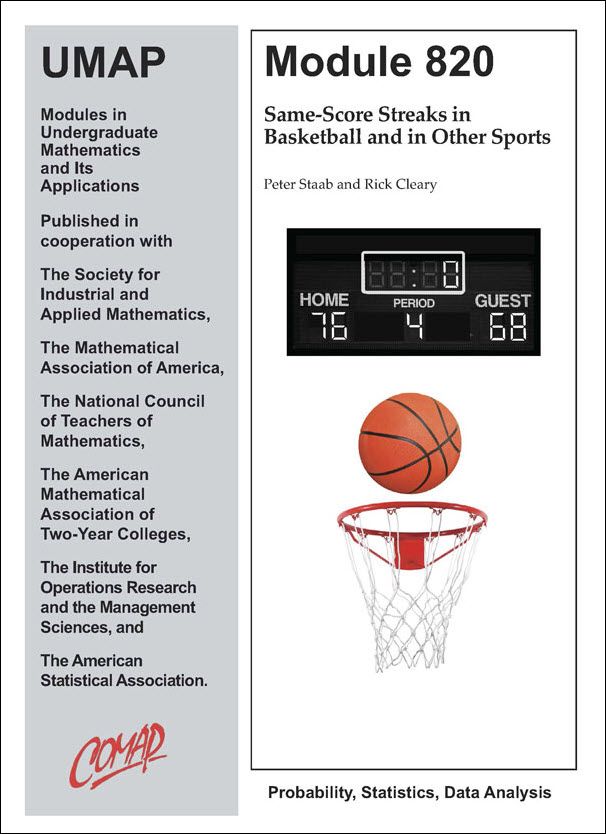Same-Score Streaks in Basketball and in Other Sports
Author: Peter Staab and Rick Cleary
Target Audience
Students with a background in probability and statistics.
Abstract
We present a real-world problem of interest to undergraduate students in courses on probability, mathematical modeling, or sports analytics. The topic is the likelihood of streaks of identical scores, but the general themes could be applied to other streaks. Students should have access to software that allows them to compute probabilities of continuous distributions so that facility with integration is not essential. Examples are provided using Jupyter notebooks, with coding in Julia; but other technologies could be substituted.
Table of Contents:
1. Introduction
2. Same-Score Streaks
2.1 Definition of Same-Score Streak
2.2 Same-Score Streaks in the NBA
3. An Empirical Model for the NBA
3.1 Modeling Rolling Dice
3.2 Modeling an Order-3 Streak
3.3 How Long Must We Wait?
4. A More-Complex NBA Streak Model
4.1 A Shifted Distribution
4.2 Bivariate Scoring Distribution
4.2.1 Analyzing the Scoring Distribution
4.3 Fitting to a Normal Curve
4.3.1 Measuring the Skewness and Kurtosis of Basketball Scores
4.4 Fitting to a Skewed Normal
4.4.1 Fitting NBA Data to a Skewed Normal
4.4.2 Binormal Distribution Based on the Skewed Normal
5. Simulating Seasons
5.1 Effect of the Mean on Same-Score Streaks
5.2 Effect of Standard Deviation on Same-Score Streaks
5.3 Probability of an Order-3 Streak in the NBA
6. Score Streaks in College Basketball
6.1 Order-2 Same-Score Streaks
6.2 Historical Means and Standard Deviations
6.3 Simulating College Basketball
6.3.1 All of College Basketball
7. The Barton College Streak
8. Solutions to Exercises
9. The Relative Rarity of 1-Point Games
10. Other Considerations
11. Instructor’s Notes
11.1 Probability Modeling
11.2 Using Technology for Modeling
11.3 Suggestions for Student Work
11.4 Data and Code Repository
References
Acknowledgments
About the Authors

Mathematics Topics:
Application Areas:
Prerequisites:
You must have a Full Membership to download this resource.
If you're already a member, login here.